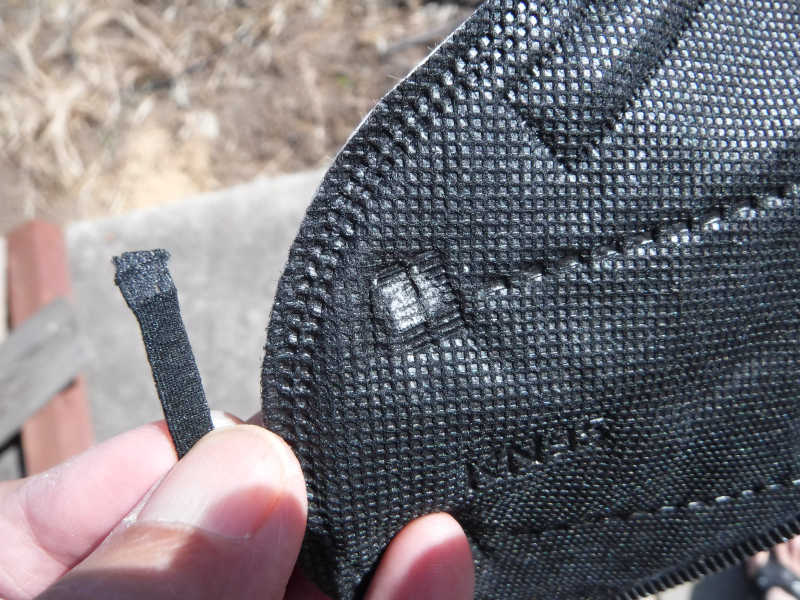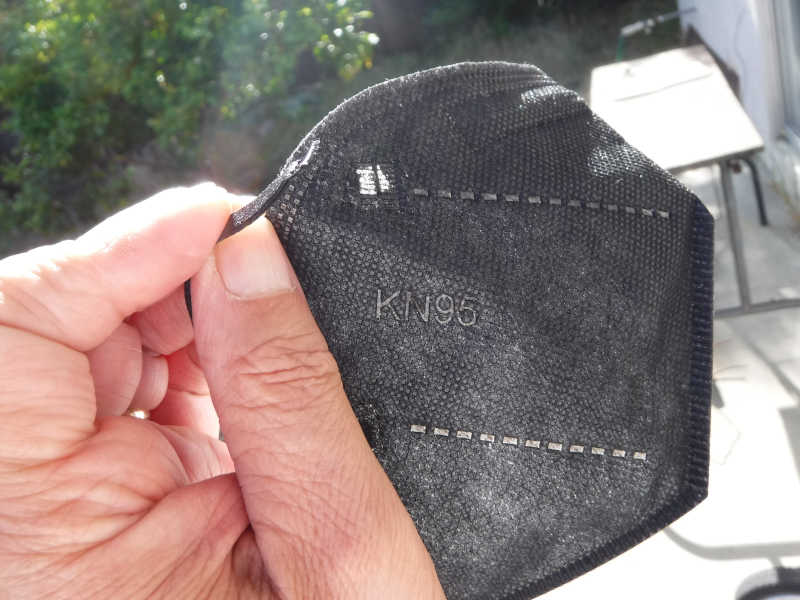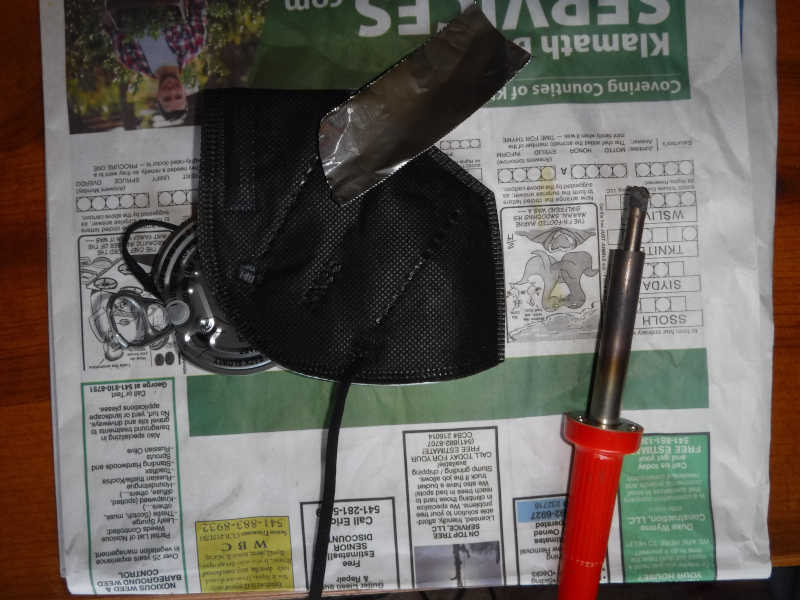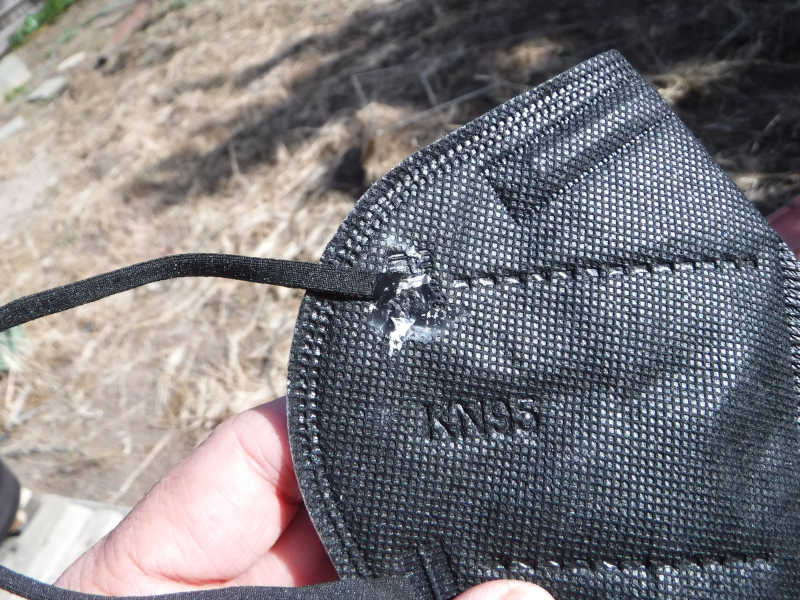There is a preception that the COVID-19 pandemic is winding down, at least in the USA. So we were able to get some face masks from Amazon at what I thought was a very good price (40¢ each) a few months ago. One brand worked great. We ordered more of another brand. The second brand seemed to have elastic ear loops that were very short. I broke half of them simply in the act of attempting to put them on the first time. So I decided to try and fix them. Why bother? Well, they are otherwise unused, and I like to experiment with this sort of thing.



I found that it works best to press the iron against the foil firmly, but very briefly – like 1/4 of a second. Longer, and you might burn through the whole mask. If the weld doesn’t take, you can always try again, but if the a hole is burned in the mask, you have to throw it away.

